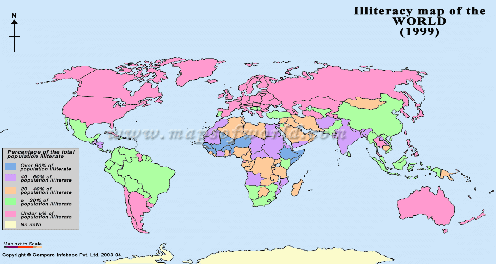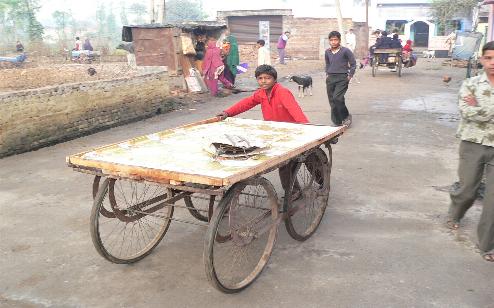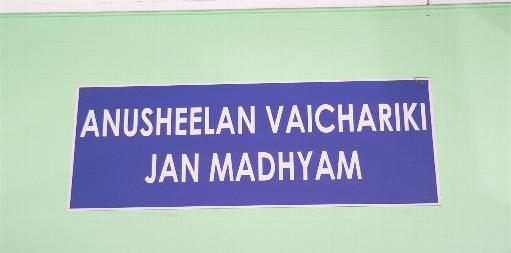Why AVJM?
Nearly one-sixth of the 6 plus billion people that is approximately over a billion people, in the world cannot read or write, according to a survey published by the United Nations Children's Fund (UNICEF). To make matters worse, the study predicts that illiteracy rates will steadily rise in the next century because only 1 of every 4 children in the poorest nations is now in school. More than half those denied education are girls, UNICEF, said in its annual report, "The State of the World's Children."

Apart from deepening divisions between rich computerized societies and those without even the rudimentary tools of knowledge in the third world, the report says, illiteracy has a direct relationship with important health indicators and fertility rates. An overwhelming percentage of illiterates are in countries with high population growth, like India, Pakistan and Bangladesh, (as of 2001, there were 296 million illiterates in India in the age group over 7 years. This represents about 34.34 percentage of the global population in that age group) where better education for children and women could significantly reduce other problems, the report says.
'A 10-percentage-point increase in girls' primary enrollment can be expected to decrease infant mortality by 4.1 deaths per 1,000, and a similar rise in girls' secondary enrollment by another 5.6 deaths per 1,000," the report says. "This would mean concretely in the subcontinent, for example, that an extra year of schooling for 1,000 girls would ultimately prevent roughly 60 infant deaths." Fertility drops sharply as education rises, UNICEF says. In Brazil, the report found, illiterate women have an average of 6.5 children, and mothers with secondary-school education have an average of 2.5 children.
UNICEF and other groups that work with children say education should be guaranteed under the 1989 Convention on the Rights of the Child. But the intentions of the treaty are overwhelmed by a host of problems, including economic crises in countries like Russia and Indonesia. Widespread ethnic conflict has made refugees of millions of children and destroyed their schools at a time when international aid for education projects is decreasing. Uprooted children are often turned into soldiers by military forces.

Unfortunately, education often has to compete with more pressing immediate needs like food and shelter, although refugee experts agree that one of the most effective ways to create a sense of stability and normality among displaced children, many of them orphans, is to establish classrooms, however rudimentary. Schooling is also often denied to young people because governments do not give schools a high priority or make it easy for families to send children. "Often when we interview street kids they say they are on the street because they were kicked out school," said Yodon Thonden, counsel in the children's rights division of Human Rights Watch, a rights group in New York. "Free education necessarily compulsory, and sometimes there are costs, which places education beyond the reach of many families, costs of things like books or uniforms or shoes."

Anusheelan Vaichariki Jan Madhyam (AVJM) was founded in 2004 to create educational opportunities for children in the age group 6-18 in India. AVJM is a registered national society under The Societies Registration Act of 1860. The founders of AVJM felt a need to establish a new organisation because most of the organisations in this arena have a disproportionately high administrative cost. AVJM has an innovative approach that ensures that almost all of the donors' contribution are channelised towards education of children. We explain our methodology at greater length in the section 'About Us'.